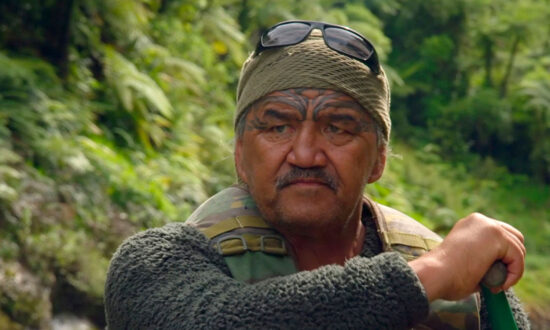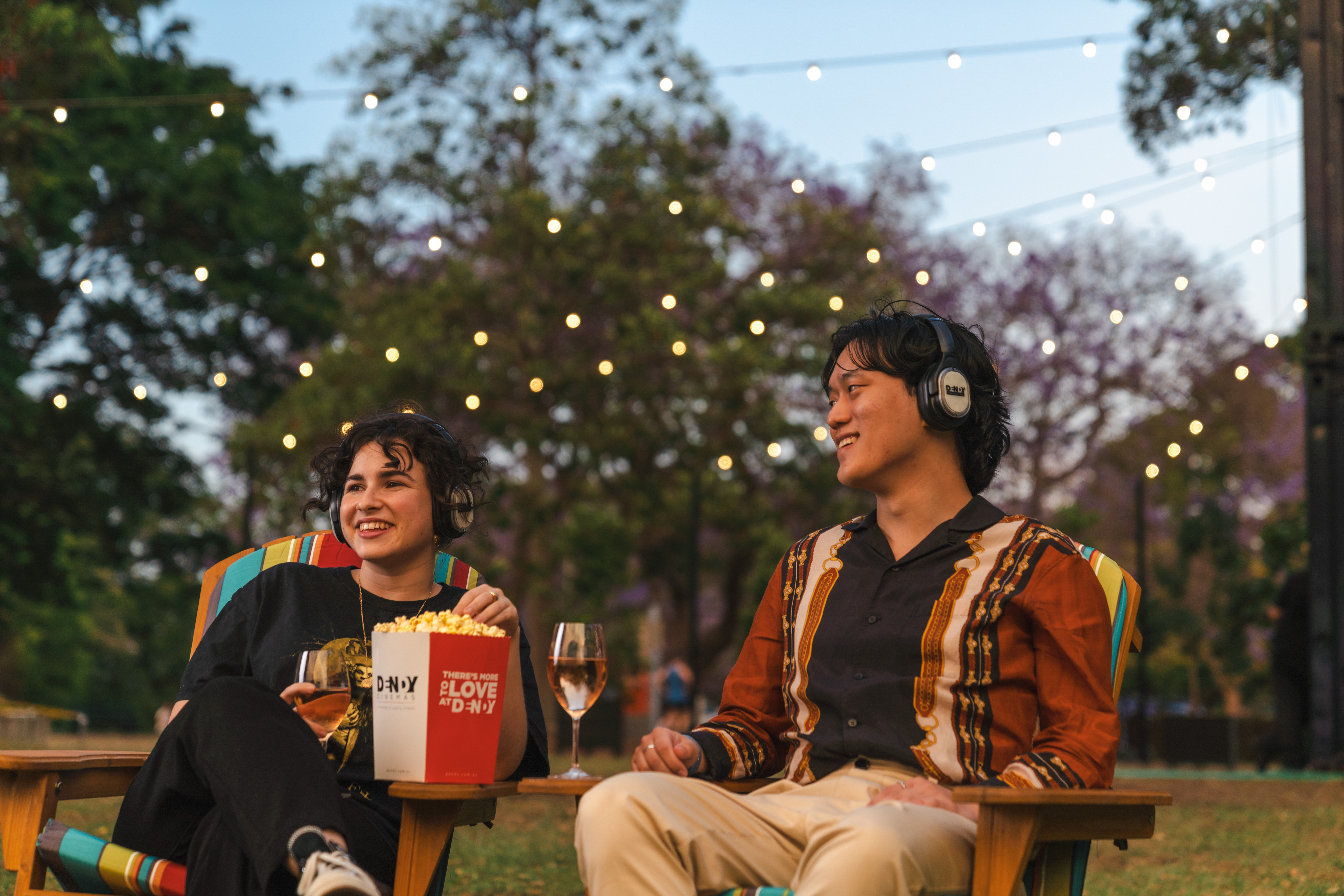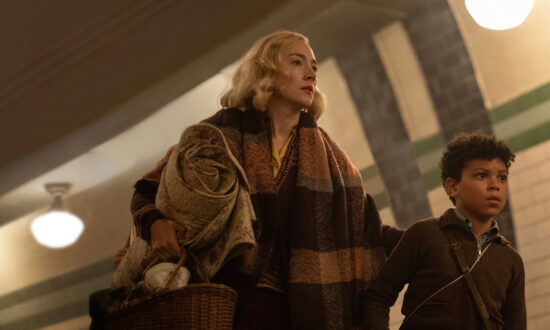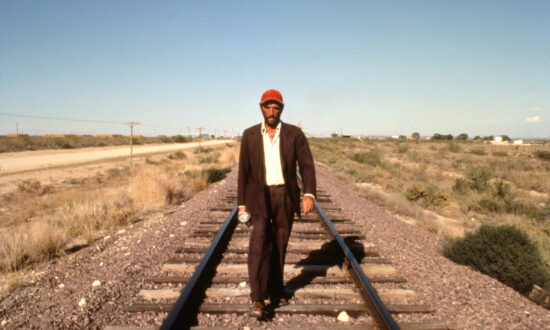There’s a range of new streaming shows to dive into in March: from the heartfelt romance One Day, which at the start of this month had already been in Netflix’s top-10 list for three weeks – to a captivating Aussie drama centred on a local mosque community.
House of Gods
iView
House of Gods is a gripping new Australian TV drama. It reveals the inner workings of an imam’s family and community, and the corrupting effects of power, ambition and secrets on family and faith.
Set in Western Sydney, the saga commences on election day at The Messenger mosque. Sheikh Mohammad (Kamel El Basha) is a progressive, charismatic contender for the esteemed position of head cleric. But he is embroiled in controversy when a young woman unexpectedly plants a kiss on his cheek while posing with him for a selfie.
The seemingly harmless gesture swiftly snowballs into a scandal that sparks a clash of ideologies within the mosque’s tight-knit community.
Fadia Abboud’s direction is enriched by her deep understanding of the Arabic community, lending genuine realism to every scene. The inclusion of Arab, Middle Eastern and Muslim actors adds an authentic touch to the drama. Their performances capture the cultural and social subtleties reminiscent of my own Arabic family and community.
Integrity shines through the costume and set design and in the meticulous portrayal of Muslim dress and architecture. These elements reflect a profound understanding of how faith influences the transition between private and public life, adding credibility to the storytelling.
For many in the Australian Arabic community, including Abboud, seeing a project created and written by Arabs, and featuring Arabs as lead characters, is an exciting and welcome development.
– Cherine Fahd
Five Blind Dates
Prime
If the balance of Five Blind Dates is occasionally a little off, it is nonetheless a lovely film – one I could see becoming a comfort watch for a lot of people. It’s as warm and familiar as the cups of tea purveyed by its heroine.
Lia (Shuang Hu, also the co-writer) runs a traditional Chinese tea shop in Sydney, but is in Townsville for the wedding of her sister (Tiffany Wong). The film’s premise is established very quickly when, at one of the pre-wedding events, Lia is told by a fortune teller she will meet her soulmate on one of the next five dates she goes on. And then, when she re-encounters her ex-boyfriend Richard (Yoson An) at Alice’s engagement party, Lia ends up on a mission to go on these five dates as fast as possible so she can bring her soulmate to the wedding – and thus show up Richard, who is the best man.
While there is nothing particularly surprising in Five Blind Dates, it is nevertheless a really refreshing film. We don’t have a lot of rom-coms set in Australia, much less ones that centre on Chinese Australian characters. It’s a playful, joyful film with a likeable and layered heroine which doesn’t outstay its welcome (it clocks in at under 90 minutes).
– Jodi McAlister
Lessons in Chemistry
Apple TV
Fashion, cars and 1960s politics provide an engaging context for Lessons in Chemistry, a mini-series based on Bonnie Garmus’s best-selling novel. Those who loved the book might see shortcomings in the series, such as the dog’s role being downgraded. Yet it is entertaining and succeeds on its own terms.
Elizabeth Zott (Brie Larson) and Calvin Evans (Lewis Pullman) are totally engrossed by science; their every waking moment involves contemplating it. This makes them social outsiders who aren’t especially interested in others – something used productively to motivate story arcs. A meeting of minds and shared passion for the field quickly becomes love and mutual respect. Calvin supports Elizabeth to work as a chemist – no small feat for a woman in the era. Together, they outshine everyone around them.
The story stands out due to its ardent portrayal of a woman who is so passionately absorbed in her work.
Eventually, unfair circumstances lead to Elizabeth – who also loves to cook and applies science to achieve the perfect recipe – becoming a hugely popular cooking show host. From this platform she motivates her female fans to step into their aspirations, whatever they may be.
– Lisa French
Feud: Capote vs The Swans
Binge
Feud: Capote versus The Swans is a delightfully bitchy yet subtly nuanced portrait of friendship between gay men and straight women, a topic I tackled in a documentary I recently produced.
When famed writer and high-society insider Truman Capote publicly airs the dirty laundry of his ultra-rich gal pals, the knives come out in an oh-so-fabulous way.
Based mostly on facts, the FX television series is set against a historically accurate 1960s and ’70s North American milieu, but takes a few liberties. In my favourite episode so far, pioneering documentarians Albert and David Maysles capture Capote’s 1966 Black and White Ball at the Plaza Hotel – the ball happened but the Maysles Brothers never recorded the glamorous event in actuality.
Sumptuous production design, a dazzling cast (most notably Naomi Watts as New York socialite Barbara “Babe” Paley and Tom Hollander as Capote), and deft directing from queer provocateur Gus Van Sant all add up to a quality television viewing experience that prises open privilege in all its beautiful ugliness.
– Phoebe Hart
One Day
Netflix
At first glance, Netflix’s decision to adapt David Nicholls’s beloved novel One Day may seem strange after the 2011 film bombed so cataclysmically.
However, the book’s episodic structure lends itself beautifully to television, resulting in a highly bingeable romance. Like its source material, the series depicts 20 years of friendship and a “will they, won’t they” angst between working-class Northerner Emma (Ambika Mod) and wealthy golden boy Dexter (Leo Woodall).
Each episode takes place on July 15, beginning with the unlikely duo’s booze-fuelled graduation night in 1988. This central conceit provides the narrative structure for the 14-part series, an unusually long runtime in today’s streaming market.
Arguably overly leisurely at times, One Day’s slower pacing ultimately creates space for old hurts and yearnings to wane, fester and reignite. It is ably helped along by compelling performances from Mod and Woodall. Mod brings warmth to Em’s prickly sarcasm, while Woodall infuses Dex’s privileged arrogance with enough genuine charm to make both Emma – and by proxy, us – forgive him.
One Day isn’t perfect, particularly regarding its superficial treatment of race and class. But its combination of 1990s nostalgia (hamburger phones! Eagle Eye Cherry! Portishead!) and swoony romance makes it a tissue-sodden winner.
– Rachel Williamson
True Detective, season four
Binge
The fourth season of True Detective, titled Night Country, has been created by showrunner Issa López, who notably directed the incredible film Tigers are Not Afraid (2017).
This season is a terrifying exploration of ecological and First Nations justice. The lead detectives are Jodie Foster playing the gruff Police Chief Liz Danvers, and relative newcomer Kali Reis as the more junior trooper Evangeline Navarro. Also starring is the incredible Fiona Shaw as a spiritual woman living on the edge of town.
In the opening episode, several members of the nearby research station go missing, presumed dead. Navarro believes the disappearances are connected to the death of a First Nations woman several years ago, and the powerful Silver Sky mining company.
The series is notably different to previous seasons of True Detective in that López employs both magical realism (also used in Tigers are Not Afraid) and folk horror to push this whodunit into horror territory. The shift has angered some fans, but I think it would do the show a disservice simply to repeat what came before.
In an interview with Vanity Fair, López shared that she sees this as an inverse of the first season: “Where True Detective is male and it’s sweaty, Night Country is cold and it’s dark and it’s female.”
– Stuart Richards
Cherine Fahd is Associate Professor Visual Communication, University of Technology Sydney; Jodi McAlister is a Senior Lecturer in Writing, Literature and Culture, Deakin University; Lisa French is Professor & Dean, School of Media and Communication, RMIT University; Phoebe Hart, Associate Professor, Film Screen & Animation, Queensland University of Technology; Rachel Williamson is a Senior Tutor in English, University of Canterbury, and Stuart Richards is a Senior Lecturer in Screen Studies, University of South Australia. This article is republished from The Conversation under a Creative Commons license. Read the original article.
![]()
Support local arts journalism
Your support will help us continue the important work of InReview in publishing free professional journalism that celebrates, interrogates and amplifies arts and culture in South Australia.
Donate Here




